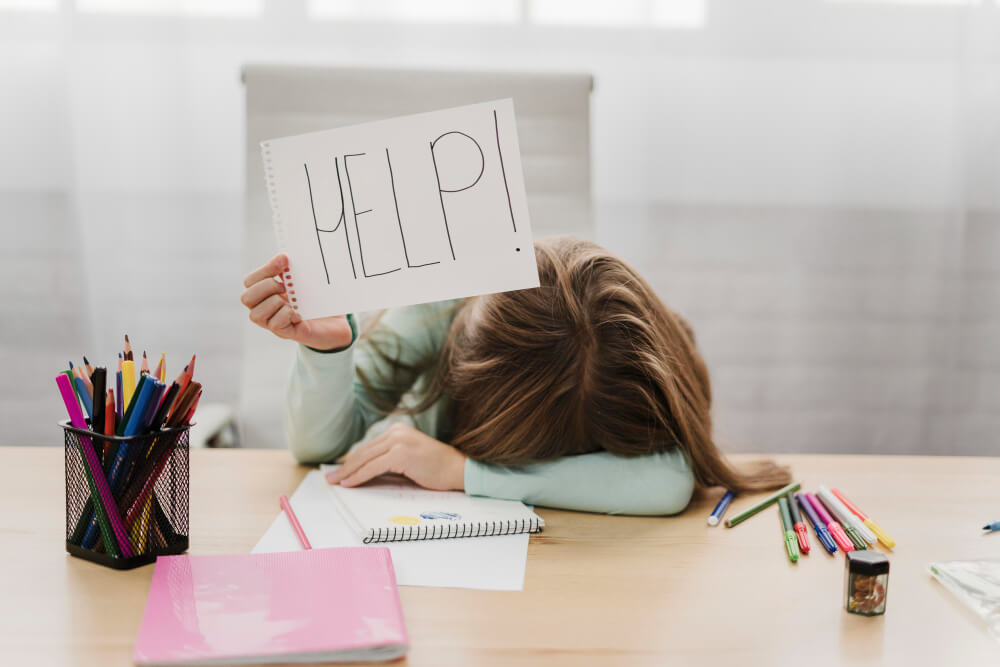In this ever-moving world, the stranglehold of Stress has become a constant companion for many. It hides in the background of our day-to-day activities, often building up from minor irritations to huge burdens. But what is stress? Stress, at its most basic level, can be defined as the normal response of the body to threats-whether these be physical, emotional, or psychological in nature. This is the primal response that initiates a number of biochemical changes-armament for action that, all the same, leaves long-lasting marks on our health.
In attempting to negotiate the labyrinthine nature of modern life, it is relevant to review this many-splendored thing called anxiety. This phenomenon does not cloud just the minds but also changes the physiological landscape. From the incessant battering of the heart to the rigid contractions of muscles, the undulations of stress course through the body in myriad ways. Understanding these responses forms much more than an academic interest in that it should provide the very roadmap to take control over one’s life.
Imagine understanding just how interconnected anxiety is in our lives and, through that very understanding, being empowered to take concrete steps toward minimizing its impact. This may mean finding some relaxation techniques, reassessing priorities, or engaging in healthy coping-the things that awareness can lead us to in order to transform our relationship with stress.

Let’s start this journey together as we set out to unravel the twists and turns of stress and the ways of becoming resilient against life’s odds. Knowing about anxiety is just not about knowledge; it is an invitation toward actions that give you the handle for taking responsibility for your health and well-being. Seize the moment and boost your quality of life as you unlock the secrets of stress and its impact on the body.
- Defining Stress: A Biological and Psychological Perspective
Stress weaves a complex tapestry into the human experience, as biology intertwines with the psyche. Oftentimes, perceived merely as a passing discomfort, it comprises some of the deepest physiological and emotional consequences. As life’s challenges arise, the immediate biological response to stress-instantly launching an avalanche of hormones that is better known as our “fight or flight” reaction-serves to prepare the body for action. However, the impact of anxiety goes well beyond mere survival instincts, touching on everything from our level of mental acuity and emotional stability to general health.
Understanding stress both from a biological and psychological perspective makes it a very dual natured malady. The biological processes, which trigger physical changes that may lead to diseases such as hypertension and digestive problems, the psychological effects manifest as anxiety, depression, and mental deterioration. The question this duality raises is how we successfully navigate the dynamics of anxiety to be better resilient.
Knowing the components of anxiety on the Body can, therefore, turn its tide for men. Stress mastery begins with awareness, and to recognize the causes, understand the process is to take the first step towards reclaiming well-being. If one embarks on a journey into exploration, the possibilities for a healthier life can be opened.
- The Stress Response: Fight or Flight Explained
In the face of danger, an ancient instinct is stirred within us-the stress on the body launches us into a feral state called the fight-or-flight response. This remarkable survival mechanism has evolved over millennia and enables instant reactions to dangers. Visualize being in front of a ferocious predator or facing some other challenge head-on; in only a few seconds, your body is ready for either fight or flight.
The subtlety of this response is important to understand. In the case of danger, the hypothalamus is rapidly stimulated and initiates a cascade of hormonal signals that flood the bloodstream. Heart rate increases, muscles contract, senses heighten-all these biological changes rapidly prepare individuals for action. While this response is lifesaving in an acute situation, chronic activation has devastating consequences for health, such as anxiety and cardiovascular disease.
By realizing the importance of this fight-or-flight response, one opens up for a great possibility of self-realization. Learning to identify triggers and deploying various strategies to handle the stressor effectively can help individuals regain their lives. Learn about this amazing response and find out how to harness its power for resilience and well-being.
- Chronic Stress vs. Acute Stress: The Long-Term Impact on Health
In the ever-changing face of modern life, a differentiation between chronic and acute anxiety has several health ramifications. Acute stress is a time-limited response to immediate threats that may serve as a drive, compelling people to get things done on time or cope with pressing matters. However, it also turns into a chronic condition-that is, persisting over weeks, months, or years-and casts a long shadow over well-being with its heavy load of stress to the body.
Chronic stress has insidious consequences, invading all systems in silence. Starting from hormonal disorders and finishing with cardiovascular anxiety, the result may be not only anxiety disorders, depressions, and disabling corporal diseases but also a sharp contrast to raise an urgent question: how to avoid transition from acute to chronic stress?
Knowing the long-term effects of anxiety on health will give a desire for proactive change. One is able to regain their vitality by identifying their stressors and utilizing effective coping methods. So in this chapter, learn subtle nuances about types of stress and how you can protect your health from the insidious effects of chronic stress. Take the first step today on your journey toward resiliency and wellness with.
The Brain-Body Connection: How Stress Affects Mental Function
The complexity of human biology has one underlying relation that is as simple as it is astonishing: that anxiety applied to the body significantly and continuously impresses its mark upon how the mind works. Visualize this: some unplanned pressure comes before you, thus igniting a domino effect of mental and physical actions. Your brain starts firing into your system hormones like cortisol, engaging a fight-or-flight response. While it is a mechanism that can sharpen focus and raise alertness levels, at least briefly, the repercussions of chronic stress are far more subtle.
Long-term exposure to stress depletes cognitive abilities, clouds memory retention, and generally muddles one’s thinking. The domino effect thus experienced-and the cycle of anxiety, depression, and mental fog-is a vicious battle so many wage. When one truly begins to understand how insidious the infiltration of anxiety is among the ranks of the mind, a yearning for change is sparked. The good news? People can take back their mental clarity and emotional resilience by recognizing their stressors and then working toward management strategies.
Learn to truly appreciate the dynamic between the mind and the body and what one can do to decrease the impact of anxiety. Seize this golden opportunity to enhance your mental well-being by adopting a healthy rapport with stress and its effects that affect your life so much.
- Cognitive Effects: Memory, Focus, and Decision-Making Challenges
In the world so filled with demands, strong anxiety on the body can wreak havoc with cognitive abilities. Visualize the scenario where one is at a crucial crossroad of major decisions to be made and discovers that one’s mind is foggy, one’s focus a little fragmented. This is indeed pretty much the grim reality for many, given that from a short-term motivator, stress gets converted into a persistent adversary that weakens memory, concentration, and clarity of thought.
The insidious cognitive effects of anxiety are that high levels of cortisol can interfere with the brain’s encoding ability, possibly making it more difficult to remember things and learn new information. The mental fog created by long-term stress also acts as a blockade on focus, making simple tasks feel Herculean. Decision-making becomes dangerous in the sense that either too-fast choices are taken or there is analysis paralysis.
Gaining an understanding of such cognitive challenges is important for anyone trying to negotiate life’s complexities with ease. Understanding how anxiety impairs mental performance, one can work out the development of strategies to build resilience and regain one’s cognitive function. Find out how you could win back your acute mental edge, create a new feeling of clarity, and increase your capacity to thrive in an ever-demanding world.
- Emotional Repercussions: Anxiety, Depression, and Mood Swings
The unstoppable rhythm of modern life greases the wheels for stress to take its toll on the body, creating an emotionally turbulent landscape replete with anxiety, depression, and chaotic mood swings. Visualize navigating everyday trials with a spring that is coiled tight, just waiting to snap at any moment. This emotional turbulence is not an inconvenience; it is a symptom of an ongoing struggle.
The interplay of stress and emotions together is complex. Chronic stress starts the vicious circle of the activation of systems of brain responses to stress, which thus creates anxiety that might spiral upwards into overwhelming dread. In the same line, the pervasive weight of stress saps motivation and drains joy, while it opens the door to depressive episodes that color a person’s perception of reality. Mood swings become common, with interactions and daily activities making one frustrated.
Recognizing these emotional aftermath effects is important in building resilience and rebalancing. By accepting that stress can have emotional consequences, the beginning of finding ways to manage it effectively can be offered. Empower yourself with ways to regain emotional stability, cope in healthier manners, and develop a new sense of wellbeing. Take the first step toward grasping the deep impacts of stress on your emotions and learning to take charge of your mental health.
- Stress and Sleep: The Cycle of Insomnia and Fatigue
The stormy pace of modern life may mask stress to the body, much like a silent predator that steadily ravages your peacefulness and productivity. Picture yourself lying awake, the hands of the clock mocking your inability to surrender to sleep, as fatigue festers like an uninvited guest. This is not some innocuous, insomnia-fueled cycle of exhaustion but rather one that threatens to have far-reaching effects on both your mental clarity and your physical well-being. You may get into a vicious circle: the more you want to sleep well, the more you actually won’t. But diving into this exciting topic forms the basis for understanding how tangled the connection between stress and sleep is. By understanding your bodily responses on such a deep level, you can make it so that stress acts as an agent of change rather than a chain of lethargy. It is time to take back the nights and revitalize your days. Connect with this journey to dig out actionable insights that pave the way for tranquility and let restful sleep be more than just a dream, but reality itself.
Stress and Its Physical Manifestations: A Deep Dive
The complex interplay of human experience has a story to tell in the anxiety placed on one’s body. Sometimes it starts with a whisper: maybe a racing heart or a tension headache. But for too many, these symptoms crescendo into a cacophony that is debilitating and disrupts the order of daily life. As the demands of modern existence increase, so does the multifaceted understanding of physical manifestations of stress. From chronic fatigue, digestive disorders, skin irritations, to cardiovascular complications, the body speaks in voices screaming for awareness. Let this journey take one step further into how stress works within your body for an understanding of those paths on which emotional chaos gets transformed into physical distress. Imagine this: unlocking the secrets of your body’s signals, empowering yourself to minimize these effects and restore balance. As knowledge is converted into action, you will be able to develop your resilience and tap the power of your awareness. Engage in this critical discourse so that you may not only learn the signs of stress but also be prepared with strategies to create holistic well-being, converting what could otherwise be a crisis into an opportunity for deep healing and renewal.
- Cardiovascular Health: The Heart’s Response to Stress
In a world filled with so much uncertainty, this tenuous balance between anxiety on the body and cardiovascular health becomes increasingly critical. Imagine your heart-that resilient and vulnerable organ-predicting each daily pressure with both grace and trepidation. Every heartbeat documents the unseen effects of emotional turmoil, since chronic stress is said to raise blood pressure, interfere with normal heart rhythms, and catalyze heart disease. This forms one very important link between mental strain and cardiovascular vitality. In response to the stress hormones, the heartbeat increases, the blood vessels narrow, and the whole body is aroused into an alarm state. Knowing how such physiological manifestations occur is not only a matter of academic concern but one of life and health as well. The longing for a strong heart and a calm mind could drive one to positive action. Results from this study should give you strategies to assist you in mitigating the effects of stress on your body and make you stronger and more able to maintain cardiovascular health. Welcome to a healthy heart, and let stress turn from foe to friend.
- The Gastrointestinal System: From Stomachaches to IBS
The complexities of the gastrointestinal system often go unnoticed, but it certainly wields immense power in how we are. From simple stomachaches that stand in the way of everyday living to the more serious and chronic disorders, such as IBS, these are no less an important barometer of our overall health. How often do you think emotions are connected with physical well-being? The relationship is deep between body anxiety and gastrointestinal disturbances, as it involves millions of people and may set off a chain of symptoms that will markedly alter daily activities, even the most basic. This calls for a closer look at this interplay of mental and physical health. Through this series of digestions, the multivaried gut health will be unveiled; we will discuss the root of some very ordinary disorders and active steps to help anyone create a resilient digestive system. See how taking control of such a complex system can take back your energy. Stop just tolerating discomfort and start taking ownership of your health journey today!
- Musculoskeletal Tension: How Stress Leads to Pain and Discomfort
Most of us live in a world where stress is viewed as an inevitable traveling companion, and so we tend to live in underestimation of the latent damage it causes to our musculoskeletal health. Just visualize this: tight shoulders, nagging lower back pain, or that discomfort across your neck; these are not just signals of being tired but also testimonies of how anxiety loads your body into chronic tension and debilitating pain. This is a link between psychological stressors and physical discomfort far deeper than it may appear. Understanding how emotional strain turns into musculoskeletal tension can be a gateway to recapturing wellness. The body responds to stress with a contraction of the muscle fibers; this starts the pain cycle, which will continue to escalate unless checked. Being in charge of such knowledge helps the individual devise ways to alleviate discomfort and restore harmony. Allow yourself to gain the knowledge that will enable you to reduce these effects on your body and mind, and thus free your life from the chains of tension. Take the next steps toward the
Managing Stress for Better Health: Strategies and Solutions
The daily grind in today’s fast world is excruciating; it results in an insidious accumulation of anxiety in the body, manifested from headache and fatigue to anxiety and chronic ailments. This is not some ephemeral feeling but a serious threat to health, which needs immediate concern. What if there was a tangible way of strategies and solutions for alleviating that burden? It is in the understanding of how stress and health interplay that one can unlock a more balanced and fulfilling life.
Just think about getting up each morning with a fresh burst of energy, no longer shackled by the constraints of tension that up until now have set the pace in your life. With effective anxiety management techniques, anyone can significantly enhance their well-being and resilience. Various mindfulness meditation, deep breathing, and exercises will provide you with an oasis within chaos. The collection of such practices not only eliminates physiological stress manifestations but encourages an active attitude toward one’s mental health.
Within reach is the desire for a more robust life, full of vitality. Empowerment comes with knowledge; now is the time to act. The comprehensive study illustrates practical strategies against the pervasive influence of anxiety. It is so astonishing to realize how monumental changes in health could be produced by small and intentional changes. Embracing these solutions will clearly delineate the path toward improved well-being. Take the first steps now toward a life of no stress, and let the miracle begin. Your body—and mind—will thank you for it.
- Mindfulness and Meditation: Techniques to Calm the Mind
Restless tide of life-where having a moment to be at ease can be little more than an elusive dream. Pestered by a host of thoughts, cares, and responsibilities, chaos may ensue in the mind, culminating into unbearable unease. Such turmoil throws unbelievable anxietyon the body, from sleep patterns to emotional well-being. But what if you could take back the reins and quiet the din to restore equilibrium?

Mindfulness and meditation are just that: the mind’s refuge amidst everyday turmoil. By applying simple, yet incredibly deep methods, it teaches one how to be in life, observe thoughts, and work on inner calm. Visualize life where anxiety doesn’t rule your day, where you can manage any obstacle with clarity and poise.
By embracing mindfulness, you will get a chance to break down negativity due to stress and build a healthier, more centered self. In the following section, you will be able to find some dynamic techniques to help you reach deep mental stillness and emotional balance. Take the first step into this life-changing journey and take over your mind. The path to peace is closer than you may think.
- Physical Activity: The Role of Exercise in Stress Reduction
Stress burdens the mind and body in all aspects of daily life. What if the antidote lay just at your fingertips? Physical activity. Just think about the release, the clarity of the mind, the rush of endorphins-the organic defense mechanisms against the debilitating effects of stress on one’s body. Exercise has indeed been proved to reduce the levels of stress-be it brisk walking in the park or an intense session of workout, it really doesn’t matter.
The science behind it may be very simple, but it’s deep: in exercise, your brain switches neurotransmitters on, which are the feel-good chemicals that act as a mechanism against stress. Prolonged benefits of doing exercises regularly include rewiring the brain for toughness toward common stresses. Who would not want that?
Start small, but start today. Let movement become your most reliable tool to not only relieve stress but to regain control over your mental well-being. Let exercise be the solution to break yourself free from the bonds of stress.







